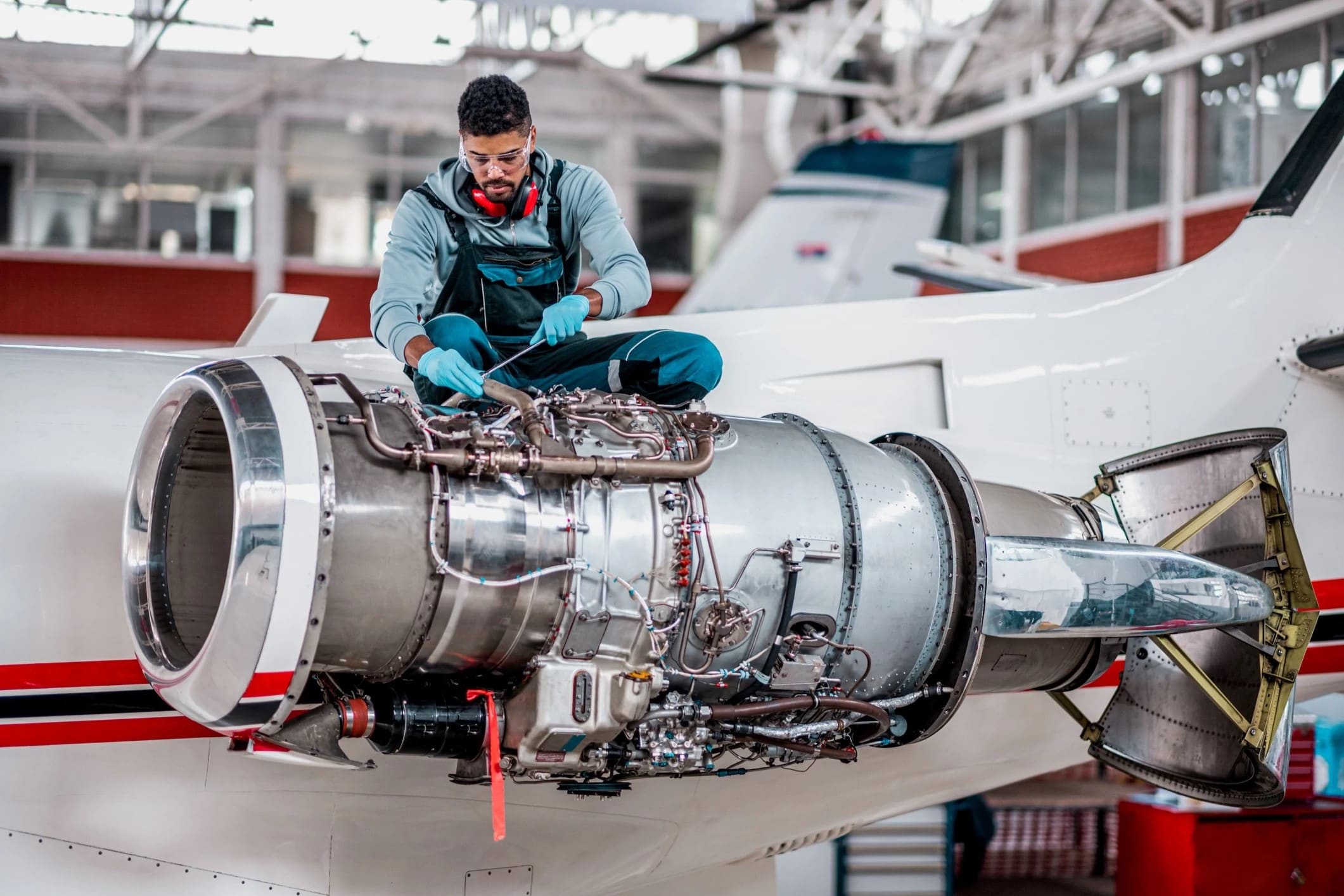
Aircraft maintenance programs are crucial for ensuring the safety and efficiency of air travel. But what exactly goes into these programs? Aircraft maintenance involves a series of checks, repairs, and overhauls that keep planes in top condition. These tasks are meticulously planned and executed by skilled technicians who follow strict guidelines. Regular inspections help catch potential issues before they become serious problems. From routine checks to major overhauls, every aspect of an aircraft is scrutinized. This ensures that each flight is as safe as possible. Curious about the details? Let's dive into 15 fascinating facts about aircraft maintenance programs that keep our skies safe.
Key Takeaways:
- Aircraft maintenance programs are crucial for keeping planes safe and efficient. They involve regular checks and repairs to prevent problems and ensure passenger safety.
- Technology and skilled technicians play a key role in modern aircraft maintenance. Digital records, predictive maintenance, and advanced tools help keep planes in top shape.
What is an Aircraft Maintenance Program?
Aircraft maintenance programs are essential for ensuring the safety and efficiency of airplanes. These programs involve regular inspections, repairs, and overhauls to keep aircraft in top condition. Here are some fascinating facts about these crucial programs.
-
Regulated by Authorities: Aviation authorities like the FAA (Federal Aviation Administration) and EASA (European Union Aviation Safety Agency) regulate aircraft maintenance programs. They set strict guidelines to ensure safety.
-
Scheduled Maintenance: Aircraft undergo scheduled maintenance checks at specific intervals. These checks range from daily inspections to more extensive checks every few years.
-
Types of Checks: There are different types of maintenance checks, including A, B, C, and D checks. A checks are minor and frequent, while D checks are comprehensive and occur every 6-10 years.
Importance of Aircraft Maintenance Programs
Maintaining aircraft is not just about fixing issues; it’s about preventing them. Proper maintenance ensures that aircraft operate safely and efficiently.
-
Safety First: The primary goal of aircraft maintenance programs is to ensure passenger and crew safety. Regular maintenance helps identify and fix potential issues before they become serious problems.
-
Cost-Effective: Preventive maintenance is more cost-effective than dealing with unexpected breakdowns. It helps avoid costly repairs and downtime.
-
Extended Lifespan: Regular maintenance extends the lifespan of an aircraft. Well-maintained planes can operate safely for many years.
Key Components of Aircraft Maintenance Programs
Aircraft maintenance programs consist of various components that work together to keep planes in top shape.
-
Inspections: Regular inspections are a core part of maintenance programs. Technicians check for wear and tear, corrosion, and other issues.
-
Repairs: When issues are found during inspections, repairs are carried out. This can range from minor fixes to major overhauls.
-
Overhauls: Overhauls involve taking apart major components, inspecting them, and replacing worn parts. This ensures that critical systems function correctly.
Technological Advancements in Aircraft Maintenance
Technology plays a significant role in modern aircraft maintenance, making the process more efficient and accurate.
-
Digital Records: Maintenance records are now often kept digitally. This makes it easier to track the history of an aircraft and its components.
-
Predictive Maintenance: Advanced sensors and data analytics allow for predictive maintenance. This means potential issues can be identified and addressed before they cause problems.
-
Drones and Robots: Drones and robots are increasingly used for inspections. They can access hard-to-reach areas and provide detailed images and data.
Training and Certification for Maintenance Technicians
Aircraft maintenance requires skilled technicians who are trained and certified to perform their duties.
-
Rigorous Training: Maintenance technicians undergo rigorous training programs. They learn about aircraft systems, maintenance procedures, and safety protocols.
-
Certification: Technicians must be certified by aviation authorities. This ensures they have the necessary skills and knowledge to perform maintenance tasks safely and effectively.
-
Continuous Education: The aviation industry is constantly evolving, so technicians must engage in continuous education to stay updated on new technologies and regulations.
Keeping Aircraft Soaring
Aircraft maintenance programs are the backbone of aviation safety. These programs ensure planes stay in top shape, preventing accidents and costly repairs. Regular inspections, timely repairs, and adherence to strict guidelines keep aircraft reliable and safe for passengers and crew.
Understanding the importance of these programs highlights the dedication and expertise required to maintain aircraft. From routine checks to major overhauls, every step is crucial. Maintenance teams work tirelessly behind the scenes, ensuring every flight is smooth and secure.
Next time you board a plane, remember the meticulous work that goes into keeping it airworthy. Aircraft maintenance isn't just about fixing things when they break; it's about preventing issues before they arise. This proactive approach saves lives, money, and time. So, appreciate the unsung heroes of aviation who keep us flying high and safe.
Frequently Asked Questions
Was this page helpful?
Our commitment to delivering trustworthy and engaging content is at the heart of what we do. Each fact on our site is contributed by real users like you, bringing a wealth of diverse insights and information. To ensure the highest standards of accuracy and reliability, our dedicated editors meticulously review each submission. This process guarantees that the facts we share are not only fascinating but also credible. Trust in our commitment to quality and authenticity as you explore and learn with us.


